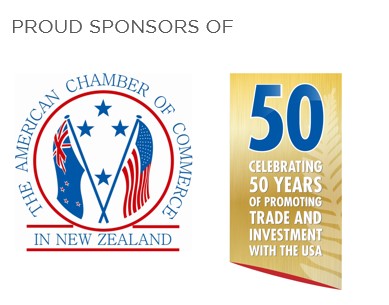Border Protection Notices in New Zealand
When counterfeit products are located within the New Zealand market it can be difficult to establish the point of source; especially when the product appears in many different places.
It is therefore increasingly important to try and prevent the product from entering the market at all.
The New Zealand Customs Service has the ability to prevent counterfeit goods from being imported into the New Zealand market, or exported, if the right criteria are met.
By filing a Border Protection Notice (BPN) an IP Owner provides Customs with the information required to detain products which it considers may be counterfeit and/or pirated. Customs will alert the owner to the attempted importation allowing the IP Owner to take pre-emptive action.
In 2018, the powers of Customs were broadened by the ratification of the Comprehensive and Progressive Agreement for Trans-Pacific Partnership Agreement (“CPTPP”). A Customs Officer can now also detain goods if they have “reasonable cause to suspect the goods are pirated or counterfeit”. This applies to both the import and export of goods.
Customs have however stated that they are more likely to stop counterfeit products where a BPN has been put into place, as it is easier to locate the information on their system. Therefore, while Customs can detain goods of a reasonable cause, it is still safer for an IP owner to file their own BPN.
FILING A BORDER PROTECTION NOTICE
A BPN is a document addressed to the New Zealand Government Customs Department that describes the trade mark or copyright work, provides contact information, and requests that Customs advise if any other party attempts to import goods featuring that trade mark or copyright work that Customs suspects may be counterfeit.
A BPN must be based on:
(a) a registered trade mark (under the Trade Marks Act 2002); covering a good, not a service; or
(b) a copyright work (under the Copyright Act 1994 or the Designs Act 1953).
A separate notice is required in relation to each trade mark or copyright work.
Each notice remains in force for five (5) years or until the trade mark or copyright expires, whichever occurs first. Notices may be continually renewed for further periods of up to 5 years at a time.
Customs also requires that a security, usually NZ$5,000, to be deposited to cover costs associated with detaining goods. The security is placed in an interest-bearing trust account and the balance is refunded, including any interest, should the BPN lapse or is withdrawn.
The security accompanies only the first trade mark or copyright notice lodged by an IP Owner. That security then covers any further notices that may be filed by the IP owner at a later date.
Please note that from 1 June 2020 the Security will no longer be required. Customs will be contacting those companies with current BPN’s to organise a return of their security.
THE OPERATION OF A BORDER PROTECTION NOTICE
Customs are not able to check every product arriving into New Zealand for its authenticity. However, with advances in technology and by working with IP Owners, Customs are capturing more pirated and counterfeit products.
Should a Customs official locate a pirated and/or counterfeit product where there is a BPN in place; or they locate a product which they have reasonable cause to believe is counterfeit; they will undertake an investigation to determine whether or not the goods appear to infringe the BPN. This investigation can include contacting the IP Owner requesting they send someone to review the product. The investigation could also take into consider the name of the importer / exporter and whether they have previously forfeited goods.
If Customs consider that the shipment is counterfeit they will serve a Notice of Determination on the importer (or exporter) and the IP Owner of the BPN.
Once the importer (or exporter) has received the Notice of Determination they have the option to voluntarily forfeit the goods to the Crown, in which case Customs will organise for the goods to be destroyed.
If however the importer (or exporter) disputes the Notice of Determination the IP Owner will have ten (10) working days, from the issue date of the Notice, to either persuade the importer to forfeit the goods, or obtain an Order from the High Court declaring the goods to be infringing goods.
This ten (10) day period can be extended to twenty (20) working days, on application.
If the IP Owner takes no action Customs must release the goods.
PARALLEL IMPORTATION
It is important to note that a BPN does not stop the importation of parallel imported products. A Parallel imported product is a genuine product branded overseas with consent of the trade mark owner.
SHOULD YOU CONSIDER A BPN?
If you have a product that can be counterfeited, you should consider filing a BPN in New Zealand. This service helps prevent counterfeit products from entering and leaving the market and provides you with an additional avenue for the protection of your intellectual property.
Customs regularly hold meetings throughout the year with IP Owners who have filed BPN’s. These meetings allow the IP Owners to present to the Customs officials information and examples of counterfeit products. By exchanging this information Customs become more aware of the products and trends in the market.
It is also important to note that the BPN also acts as a deterrent to potential importers of counterfeit goods. Customs maintain a publicly available list of trade mark and copyright BPN’s on their website – www.customs.govt.nz. As at May 2020 there are 359 IP Owners who have filed BPN’s – most covering more than one trade mark.
We are aware that some opportunists regularly review these lists to see which high selling goods are not protected by BPN’s and therefore potentially easier to get that product into the New Zealand market.
If you are interested in seeking a BPN in New Zealand please contact us to discuss further.





